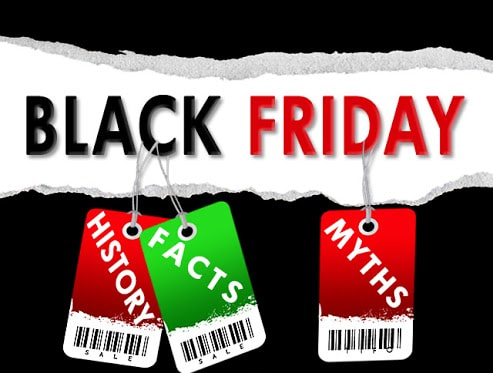
This year I have been staggered by the relentless targeting I have been received from ‘agricultural’ companies, surveys, and associated organisations contacting me over the past week mentioning ‘Black Friday’.
Not being an enthusiastic shopper, ‘scrooge’ being my middle name, it has been natural for me to ignore this new phenomenon; that is until now.
I have been bombarded with references to Black Friday by enquiries, sales offers and questionnaires, much of which is downright bullying from all quarters, but most shocking were the number of agricultural departments and suppliers.
Most things commercial which catch on in the UK start in America. Having done some research into Black Friday, it is interesting to note its origins.
For those of a sensitive nature, you should perhaps skip the rest of this paragraph. There is a ‘myth’ that gives a twist to the tradition of Black Friday. It claimed that back in the 1800s Southern plantation owners could buy slaves at a discount on the day after Thanksgiving. Although this version of Black Friday has led to some calling for a boycott of the retail holiday, it is mostly brushed aside.
If you study the genocide, invasion and slavery of Native Americans in the 1600s by so called Puritans, when each massacre was declared “A day of Thanksgiving”, it puts a different edge on this US ‘holiday’.
The first recorded use of the term “Black Friday” was applied not to holiday shopping but a financial crises: specifically, the crash of the US gold market on September 24, 1869. Notorious Wall Street financiers, Jay Gould and Jim Fisk, worked to buy up as much as they could of the nation’s gold, hoping to drive the price sky-high and sell it for astonishing profits.
On that Friday in September, the conspiracy unravelled, sending the stock market into free-fall, bankrupting everyone from barons to farmers.
The true story behind Black Friday, is not as sunny as retailers might wish us to believe. Back in the 1950s, police in Philadelphia used the term to describe the chaos that ensued the day after Thanksgiving, when hordes of suburban shoppers and tourists flooded into the city in advance of the big Army-Navy football game held on that Saturday every year.
Not only were the cops unable to take a day off, but they would have to work extra-long shifts dealing with the additional crowds, shoplifters and traffic.
By 1961, city merchants tried to change it to “Big Friday” to remove negative connotations - they failed. The term “Black Friday” did not spread across the USA until 1985 when it was reinvented into something positive. If you can call being bullied into spending money positive!
In the UK, the term “Black Friday” originated with the Police and NHS referring to the Friday before Christmas. It is when emergency services activate contingency plans to cope with the increase in workload due to the excessive drinking culture, requiring the need to set up mobile field hospitals near city centre nightspots.
In 2014, UK-based retailers adopted the Black Friday marketing scheme offering discounted prices to entice Christmas shoppers, but failed to plan appropriate levels of security. As a result police forces were called out to stores across Britain to deal with crowd control, assaults, threatening customers, shoplifters and excess traffic.
Black Friday appears to be growing in popularity. However I can reliably predict that there never will be a need for added security to control hordes of farmers queuing up to buy tractors, machinery and agricultural products. We are far too sensible, we watch our pennies and have immaculate manners!

 RSS Feed
RSS Feed